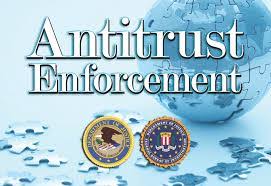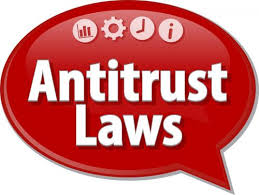Antitrust Compliance Programs: Training and Speak Up and Reporting Systems (Part III of III)

Many global companies are behind the eight-ball (translation, slow to implement) effective antitrust compliance programs. A small number of companies, some of which have suffered antitrust enforcement actions or operate in high-risk industries, have implemented innovative antitrust compliance programs. These programs stand out in the compliance landscape.
An effective antitrust compliance program typically includes robust training programs, well beyond dry in-person or webinar-based recitations of antitrust compliance issues. Innovative training programs often are used to address key risks such as antitrust and anti-corruption. In this area, companies address antitrust risks through risk-based scenarios, team competition, role playing and other interesting formats.
A training program has to divide the audience into risk-based categories of responsible persons that is keyed to the day-to-day activities of these persons. For example, a training program for sales staff should be different from a program for those responsible for bid preparation, review and approval. The risks and red flags relevant for different categories should be addressed through tailored content.

Training is an important opportunity for a company to communicate the importance of antitrust compliance and to solicit questions and input from employees. Training can be used as an important compliance moment. Often, at the conclusion of a training session, employees will approach the training person to ask important questions that they may not feel comfortable asking in a group setting.
Employee reporting of concerns is another critical aspect of an antitrust compliance program. While monitoring and testing functions may identify suspect antitrust behavior, an effective reporting system in a culture that encourages speaking up is critical to the effectiveness of a company’s compliance program.
Another important aspect of any reporting system is for senior management to speak up themselves and encourage employees to report concerns and reiterate the company’s commitment to prevent retaliation. It is disturbing that while studies have confirmed that employee reporting rates have increased, the rate of retaliation rates are growing as well. Companies have to root out any retaliation allegations and punish any substantiated allegations of retaliation.

Employee reporting is important in the antitrust context. A company that learns about prohibited cartel activity can quickly report such conduct to the Antitrust Division and earn leniency – immunity from prosecution and single damages in any related class action case. The incentives to self-report are important and winning the race to the Antitrust Division can mean the difference between a pass and millions of dollars in fines. For this reason (and others of course), employee reporting can be the critical avenue to detect potential or ongoing cartel schemes. At the same time, maintaining multiple avenues for reporting employee concerns, along with senior management and compliance promotional messaging, can advance the overall success of employees reporting concerns.















